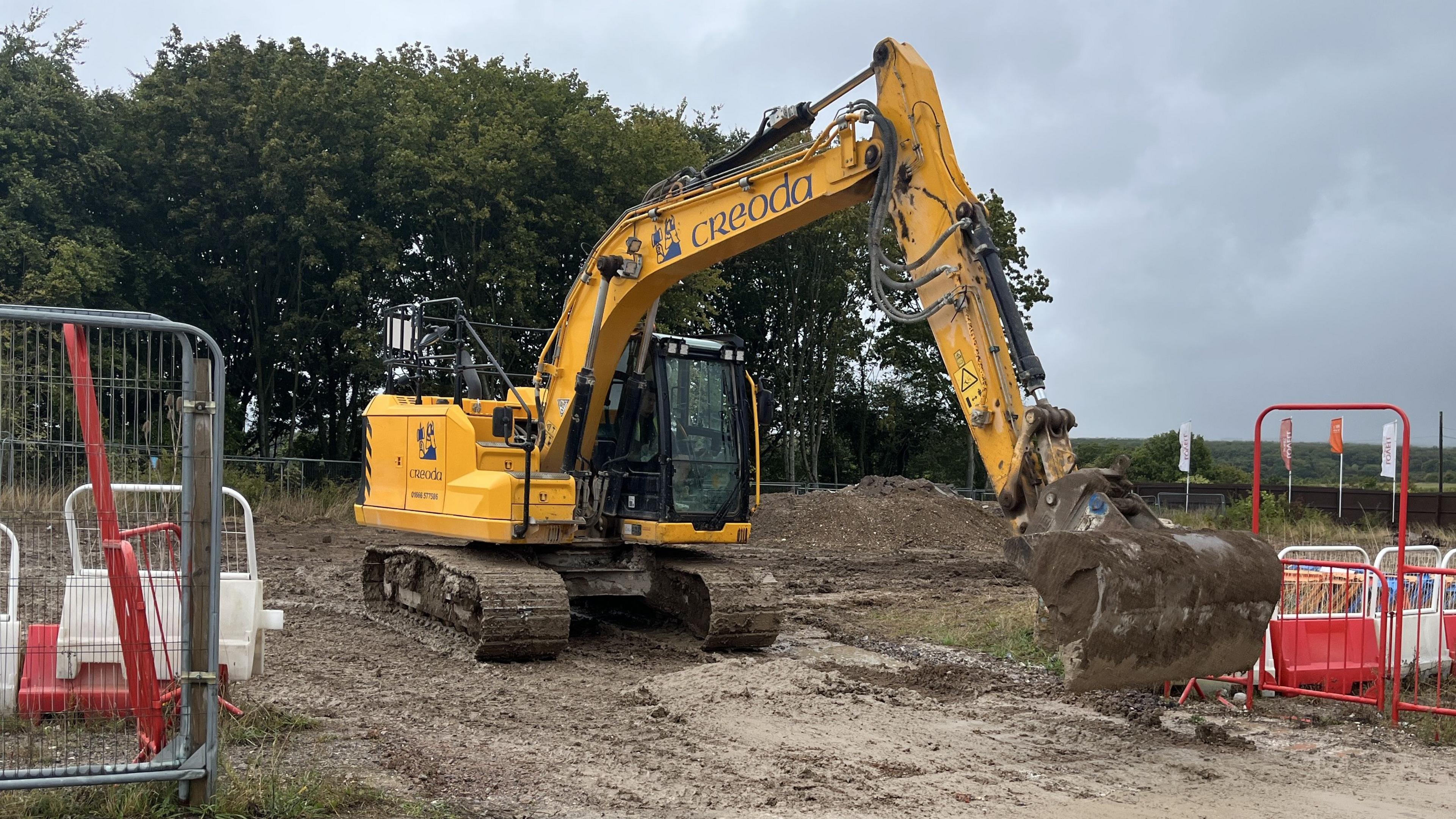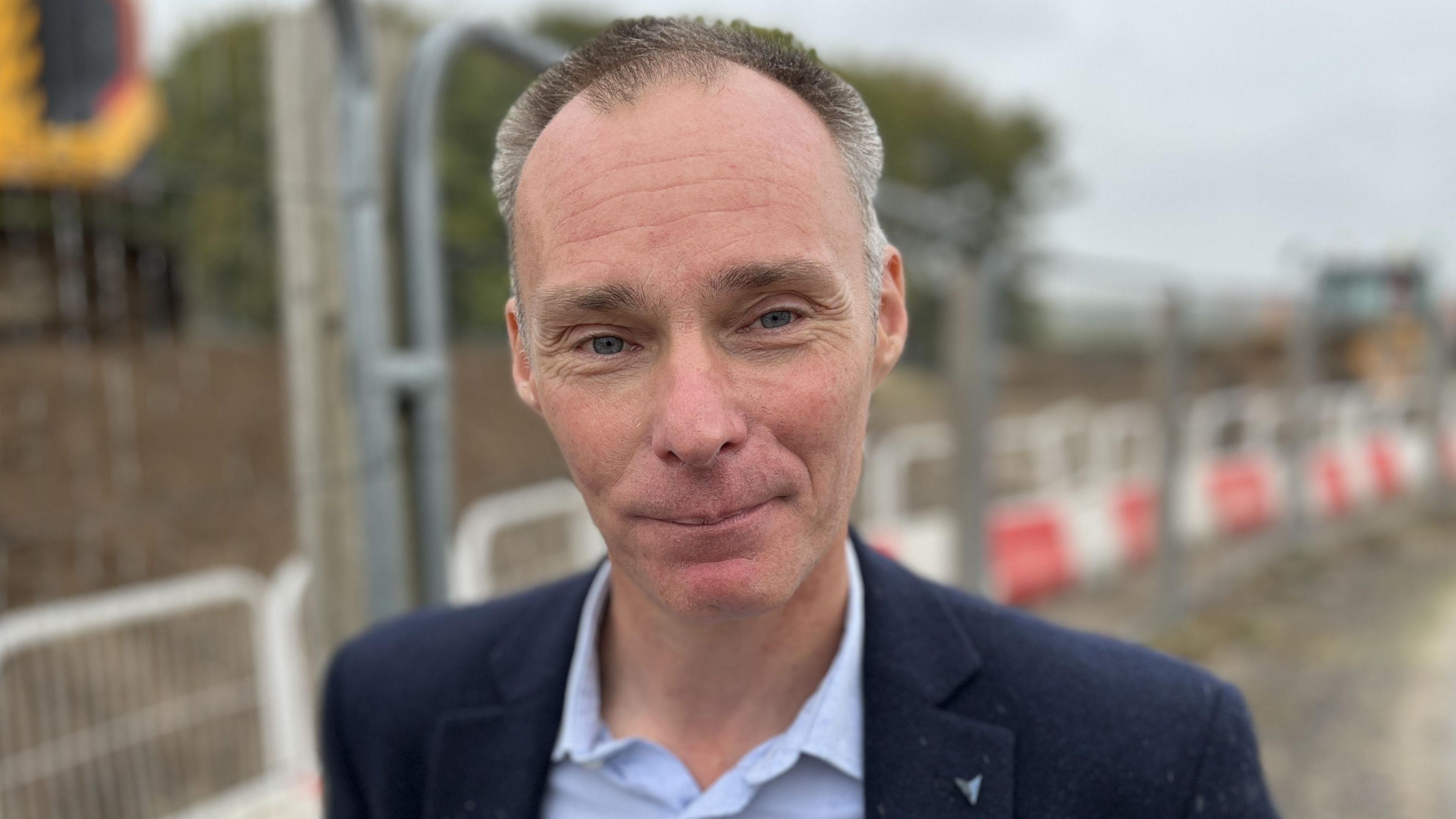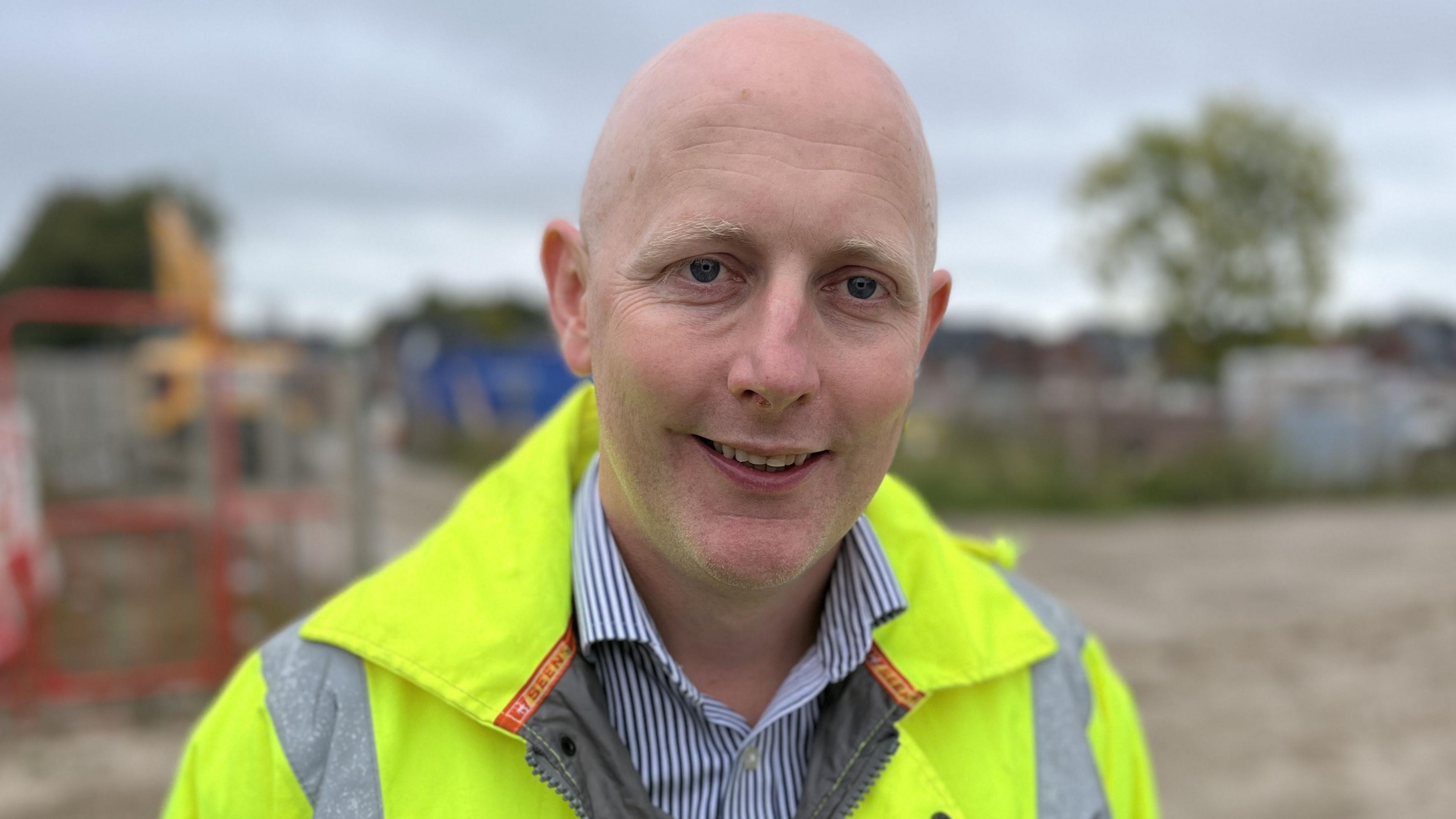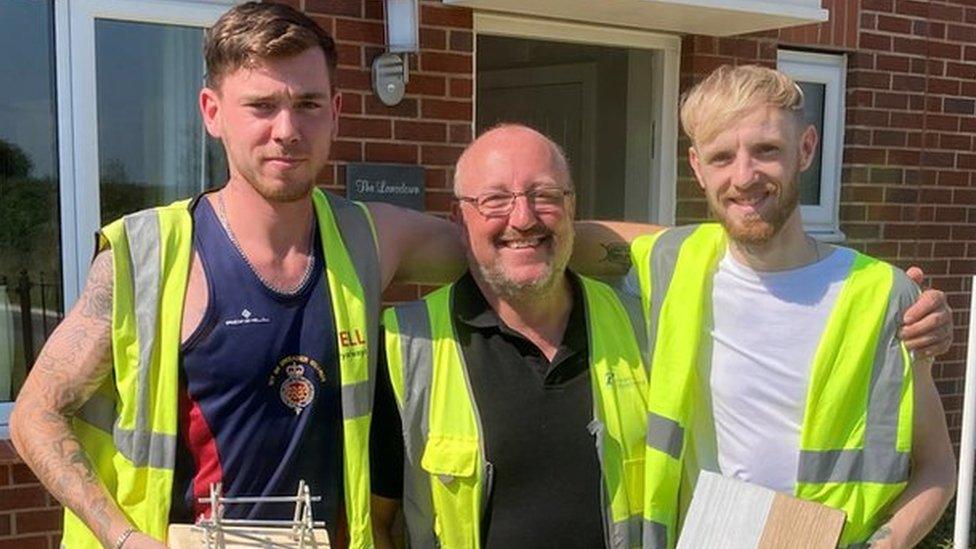Veterans help fill construction skills gap
Listen on BBC Sounds - Project Manager, Frank Nelson, and veteran, Ian Bayliss who said a new career in construction has been "life saving"
- Published
A programme training veterans in construction is helping bridge the skills gap to meet the government's pledge to build more homes.
The Veterans Self-Build Scheme, run by the charity Alabare, said almost 50 veterans had completed the programme, with most now in full-time employment.
Social housing provider Stonewater said programmes like the Veteran Self-Build Scheme were "vital to enable the building of more social affordable homes".
The government has pledged to build 1.5m new homes and said it had provided "£625m of funding to create up to 60,000 more bricklayers, electricians, and joiners by 2029 to tackle skills shortages".
Outside of housing targets, qualifications and workforce numbers, the programme has had a profound effect on some of those who enrolled.
Ian Bayliss, a veteran of the Royal Artillery, became homeless after leaving the armed forces.
He said life before the Veterans Self-Build Scheme was "bleak" and that the programme "saved my life".
A former vehicle mechanic in the Royal Electrical and Mechanical Engineers, nicknamed "E", said he fell on hard times after leaving the army, but having been enrolled on the scheme now believed he was "born to be a scaffolder".
He added that he was "buzzing" to start living his life and to earn money again.

Veterans help build affordable homes in Ludgershall as part of their training
Project Manager Frank Nelson said there was a desperate need for people in the construction industry, adding that many of the veterans on the programme were "offered work before they've finished" the year-long course.
The programme operates on seven sites across the country and ran its first pilot project in 2015.
On a new build site in Ludgershall, Wiltshire, Mr Nelson collaborates with housing developers Lovell and Stonewater.

Laurence Stone, Senior Customer Engagement Manager, CITB
"They're fantastic, they support us," he said.
Laurence Stone works for the Construction Industry Training Board (CITB) which forecasts the skills needed to meet industry demand.
Mr Stone said approximately 15,000 more workers were needed across the South West to deliver the government's housing target.
He said that nationally around 130,000 people start some form of construction training every year, but only 40,000 secure employment.
He added: "The core issue isn't that we're not training enough people, it's that there aren't clear enough pathways to translate their training into jobs.
"Better retention of trainees and current workers in construction can significantly reduce the skills shortage."
Mr Nelson said the Veterans Self-Build Scheme overcame retention issues because veterans were supported into work post qualification, worked on the site during training and knew what was involved.

Matthew Crucefix, Senior Director at Stonewater
Matthew Crucefix, senior director at Stonewater, said it was a challenge to find enough labourers.
"The Homes for Veterans Scheme is an innovative pathway into construction," he said.
"Innovation across the industry is vital to enable the building of more social affordable homes."
He added: "We need to ensure we're investing in skills and training while also demonstrating what a vital industry this is.
"Attraction and retention won't improve without the proper investment and communications."
A government spokesperson said: "Through our Plan for Change we are taking decisive action to deliver 1.5m homes, with our landmark planning reforms and the Planning and Infrastructure Bill driving UK housebuilding to its highest level in over 40 years.
"We are also building up essential skills in the construction industry and providing £625m of funding to create up to 60,000 more bricklayers, electricians, and joiners by 2029 to tackle skills shortages."
Get in touch
Tell us which stories we should cover in Wiltshire
Follow BBC Wiltshire on Facebook, external, X, external and Instagram, external. Send your story ideas to us on email or via WhatsApp on 0800 313 4630.
- Published4 days ago

- Published8 September 2023

